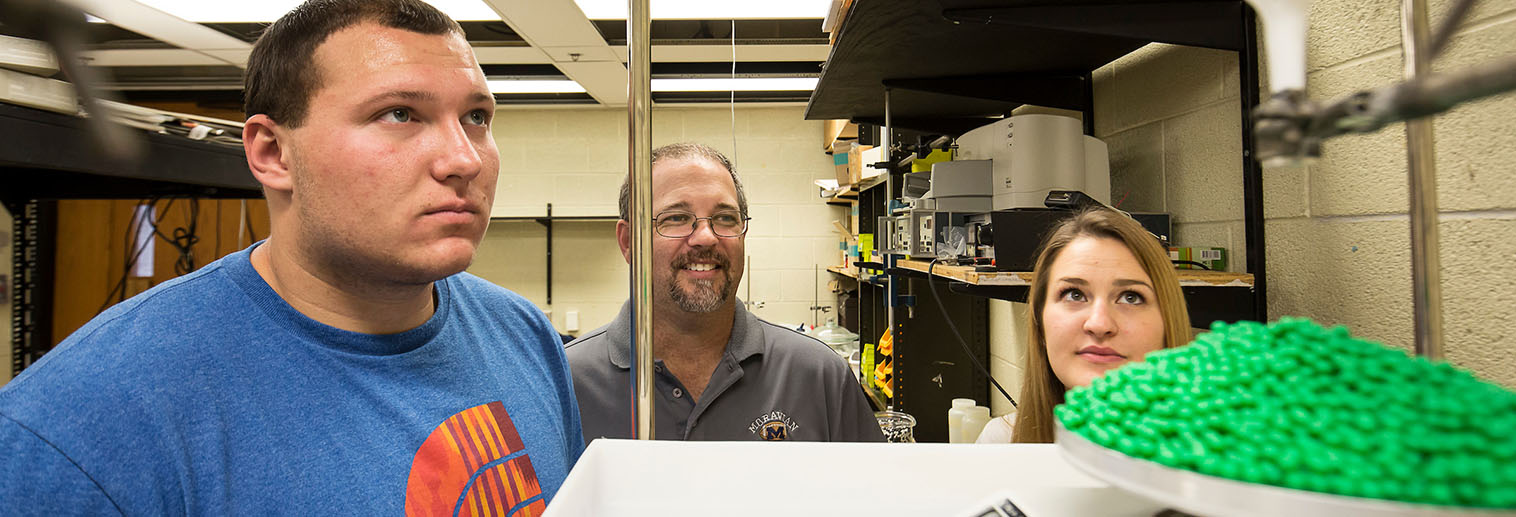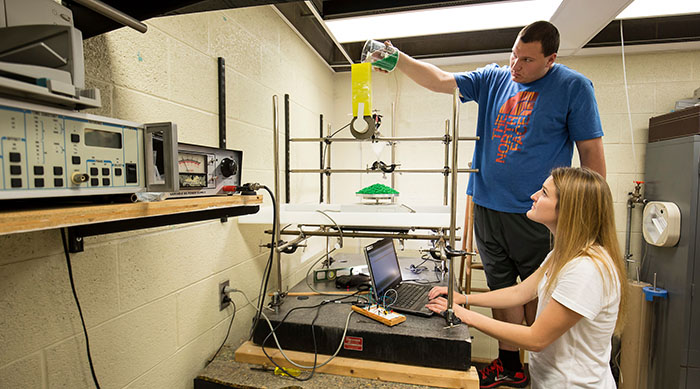SOAR Spotlight: Ljuboslav Boskic '17 and Rebecca Hamel '17
Computer Interfacing of a Granular Material Experiment
Majors: Physics
Advisor: Kelly Kriebel
Briefly describe your project.
For this project, we needed to take apart the old apparatus and design a new one. We also had to design a new, more efficient dropping mechanism. Designing a relay circuit did this and programming it to do certain commands we wanted. Next was getting a way to record data so we designed an SD circuit. This allowed us to collect various data and have it all stored into an excel file. Last we needed to set up communications with the scale. We needed weights or bead count sent to our computer. All of these together would result in one big circuit and one big code. Together all three of these things would collect data, store data, and would be more accurate due to the dropping mechanism.
Why did you decide to turn your idea into a SOAR project?
Essentially, we wanted to make Ryan Cress’s honors project better. We just wanted to get less error and make our results more conclusive. Dr. Krieble also recommended this project because we had previous knowledge with the components we would be working with.
How did your faculty advisor guide you through your research?
Dr. Krieble was there to guide us through everything we did. He would make a sketch of how essentially the apparatus should look like and we worked towards that. We would work on things alone and if we were stuck or something ask for help. He wasn’t doing everything for us, as in holding our hand but that is good because we needed to learn to overcome obstacles on our own. I think the best part of working on this project with my advisor is he never got upset if anything wasn’t working or if we didn’t know something. He would explain to us if he changed something in the program and if something didn’t work, we would try to find out why it didn’t work.
What was your biggest obstacle?
The biggest obstacle by far was the communication between the scale and the computer. We were able to establish some communication where the scale sent data but only for a short period of time. The scale sent data for a maximum of 7 minutes but we would need to keep this running over two-days. Another problem was with the data collection; it collected all 20 characters for one reading that would result in 100 excel blocks for only 5 readings. This would make it impossible to go through all the data quickly.
What has been your biggest takeaway from this experience?
The biggest takeaway was learning how to program better in C++. I learned how to program in different ways; I learned new tricks that I didn’t previously know. The biggest thing I learned was when you hit a problem; you try everything to resolve it. I hit problems in this research and I could have gone to my advisor but that was the last thing on my list. I wanted to try everything possible before I went to him because I wanted to learn from my mistakes. Sometimes it took a while to solve the problem but I was able to do it alone.
What was the result of your project? Was it congruent with your hypothesis?
The result of our project is we have built the new apparatus and built all of circuits for it. Mostly everything is done beside some of the bugs we have in the programming. If these minor bugs could be fixed soon, we could start collecting data. The code is ready for use but it has minor bugs like only recording data for 7 minutes that need to be resolved before collection can begin. In the beginning we were told by our advisor if everything works well, we will collect data but we did run into many problems. I don’t mind not taking data; I would of loved too but we learning much on our way to where we are now.
Will you expand on your research after this summer is over? If so, where would you like to see it go?
If I were to get an Honors project or another SOAR, I’d continue to work on it. If we had more time, I would love to fix these minor bugs and start collecting data. We ran short on time but we still did a lot for this project. Whoever takes over this project, they will have just need to make minor corrections and then can start the fun part of data collection. Who ever got data and if it was conclusive, they could more then likely get a publication out. This would be great for that student, the advisor, and Moravian college.


